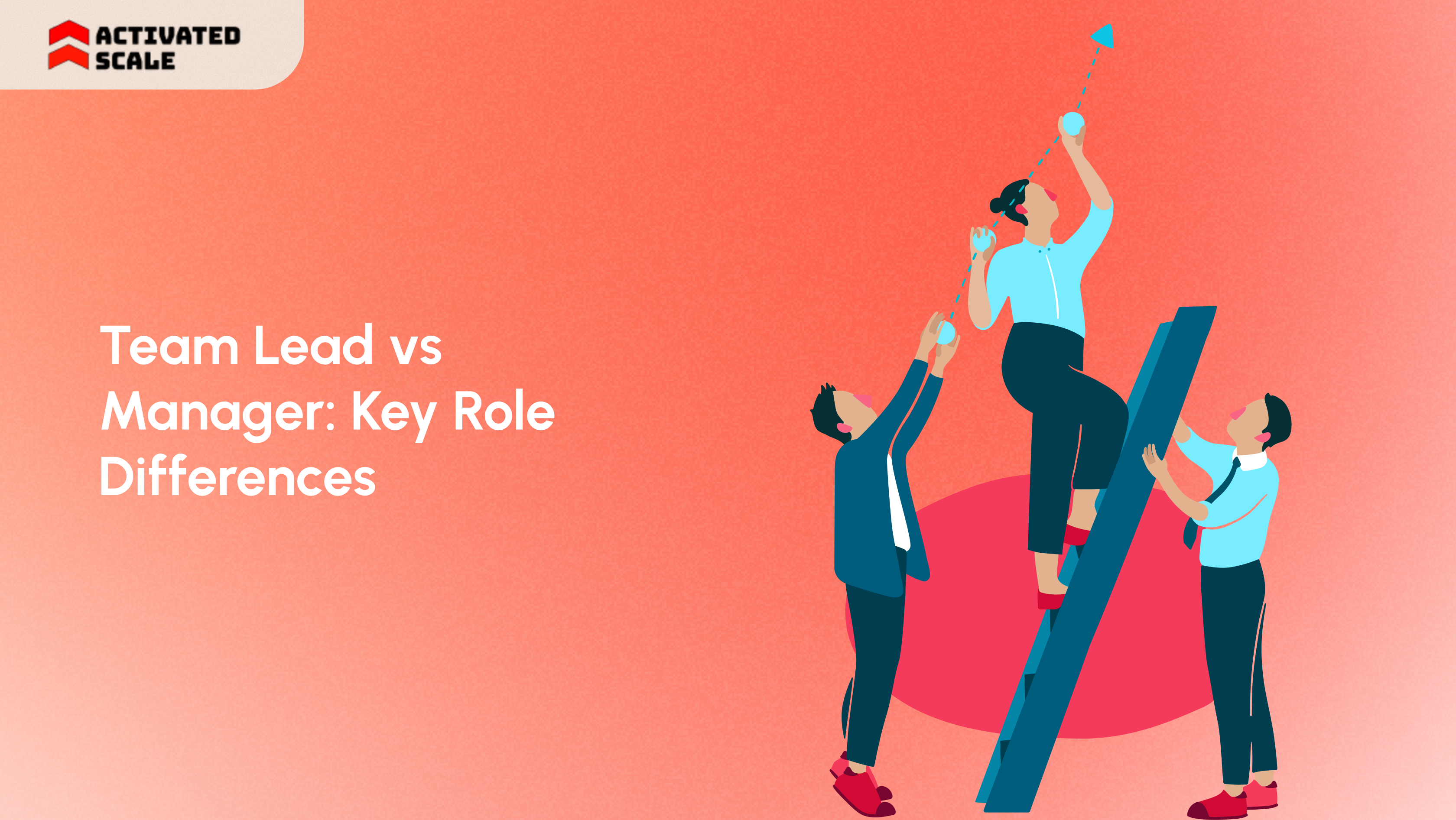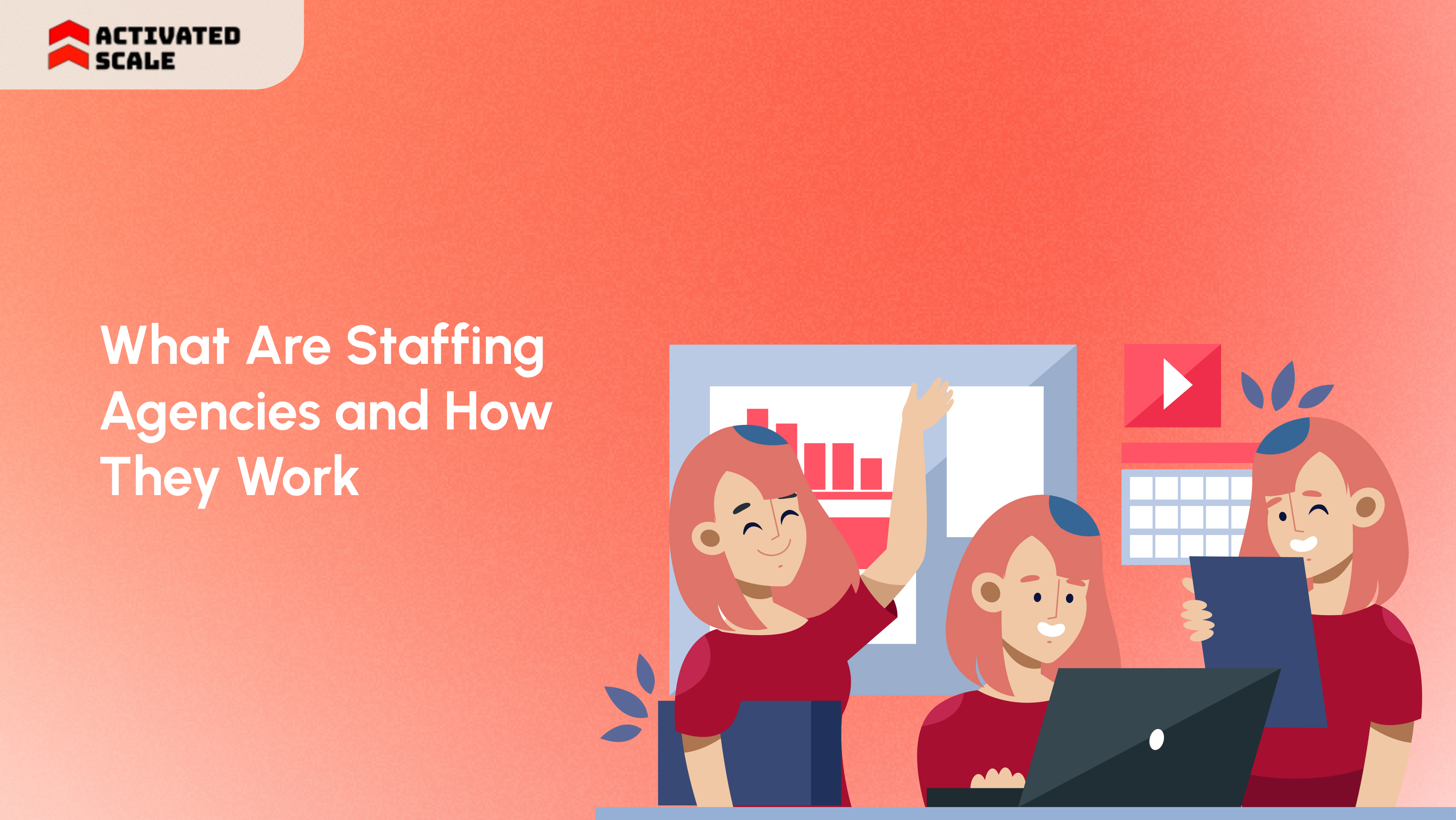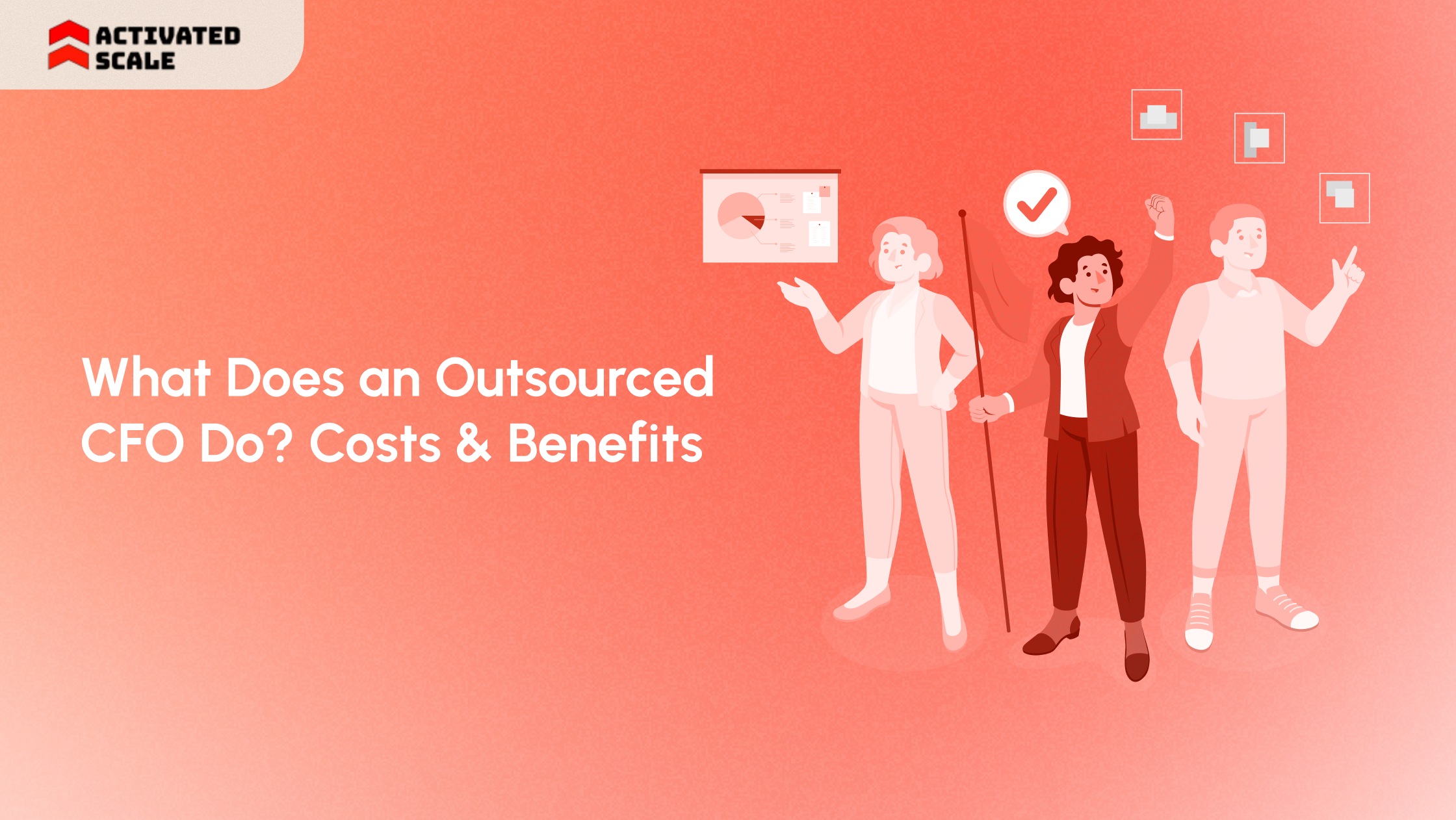If you're exploring sales as a career, you’ve probably come across overlapping terms. One of the most common confusions? Mixing up B2B sales and enterprise sales. Many treat them the same, but they’re not.
Each requires different skills, mindsets, and goals. And that difference can change how fast you grow in your sales career. In the comparison of enterprise sales vs B2B sales, one offers speed and volume, the other offers depth and payoff.
Sellers want to sell, but research shows they spend just 33% of their time actively selling (Hubspot Sales Trend Report, 2024). Picking the right path helps you make better use of that time. This guide from Activated Scale breaks it down for you.
What is B2B Sales?
You’ve likely interacted with a B2B sales rep before, maybe without even realizing it. These sellers work between businesses. One company offers a product or service. Another business buys it.
It’s common in SaaS, logistics, HR platforms, and agency services. Deals here usually move faster and involve smaller budgets. You may speak to a founder, manager, or procurement head.
When comparing enterprise sales vs B2B sales, the B2B route often favors volume. You aim to close more deals in less time. According to a report by Pavilion, 25% of B2B reps hit quota within their first year. That shows how accessible and results-driven this model can be when done right.
What is Enterprise Sales?
Enterprise sales deals with big accounts and even bigger expectations. You’re not selling to a small team, but you’re talking to major decision-makers across multiple departments.
These deals are complex. You need custom proposals, product demos, and legal reviews. It’s slow, strategic, and high-stakes. Expect longer cycles, sometimes six months or more. Now, in the debate of enterprise sales vs B2B sales, enterprise stands out by its size. It focuses on building relationships, not just closing quick wins.
Also Read: Building a SaaS Sales Team
Key Differences Between Enterprise Sales and B2B Sales
Understanding the differences between enterprise sales and B2B sales can significantly impact your sales strategy and career path. Let’s break down the key areas where they diverge.
- Sales Cycle
In B2B sales, reps focus on qualifying leads, pitching products, and closing deals quickly. It’s all about volume, as smaller companies usually need products that meet general needs.
In enterprise sales, you’ll work through multiple stages, from initial contact to multiple meetings, contract negotiations, and product customizations. The complex nature of enterprise solutions means more time is spent aligning with various stakeholders, customizing proposals, and addressing specific needs.
- Deal Size
The size of the deals in B2B sales is typically smaller. The contracts are less complex. This is ideal if you enjoy working and prefer less negotiation.
In contrast, enterprise sales focus on larger contracts, often worth millions of dollars. These deals involve multi-year commitments and require more intricate negotiation. A single enterprise deal can bring in more revenue, but it comes with a higher risk and a more demanding process.
- Stakeholders Involved
In B2B sales, you typically deal with one or two key decision-makers. This makes it relatively easier to move deals forward because you're only handling a few opinions and interests.
For enterprise sales, the complexity increases. You’ll often have to work with a team of decision-makers, sometimes upwards of 7–10 people. This includes executives, department heads, legal teams, and financial officers. It requires a lot of relationship-building and collaboration to align all parties involved.
- Revenue and Commission
When discussing enterprise sales vs. B2B sales, you can’t forget about commission structures. B2B reps usually earn smaller commissions, but this can lead to steady income. The quicker sales cycle means frequent paydays, though they may not always be large.
In a single enterprise deal, the earning potential is greater, the income is less predictable, and requires more patience.
As you can see, there are distinct benefits and challenges in both enterprise sales and B2B sales. However, how do you track success and measure performance in these differing environments? Let’s understand the key metrics that will help you evaluate your effectiveness in each role.
Key Metrics to Measure Success in Enterprise and B2B Sales
Measuring success in sales is essential for growth, whether you’re in B2B or enterprise sales. While both roles share some common KPIs, there are distinct metrics that can define success in each. Let’s explore what these key metrics are in enterprise sales vs B2B sales.
B2B Sales Metrics

- Lead Conversion Rate
The lead conversion rate tracks how many leads you’re able to convert into paying customers. This shows your efficiency in handling multiple deals at once. A high conversion rate indicates you’re great at identifying quality leads and closing efficiently.
- Quota Attainment
For B2B sales reps, hitting your monthly or quarterly quota is a critical metric. Reaching or exceeding your target showcases your ability to drive revenue at a steady pace. Reps who exceed quotas often see higher commissions, so this is a motivating factor.
- Customer Acquisition Cost (CAC)
Customer Acquisition Cost helps you understand the investment required to bring in new customers. Lower CAC means you're generating revenue at a lower cost, which is critical for B2B models that depend on high volume.
Enterprise Sales Metrics
- Average Deal Size
In enterprise sales, the average deal size is a primary indicator of success. Since each deal involves larger budgets and custom solutions, it’s important to track how much revenue each closed deal brings in. Bigger deals can lead to more substantial commissions, though fewer in number.
- Pipeline Value
The pipeline value represents the total worth of deals in progress. In enterprise sales, the value of your pipeline directly correlates with future revenue. A healthy pipeline is essential, given the long sales cycles.
- Win Rate
Win rate is the ratio of successful deals to total opportunities. Enterprise sales teams often have lower win rates compared to B2B due to the competitive and high-risk nature of their deals. A high win rate indicates your ability to build relationships and close complex deals successfully.
Common Metrics Across Both Models
- Customer Retention Rate: Retaining customers and getting repeat business is essential in both enterprise and B2B sales. The better your retention rate, the more sustainable your revenue will be.
- Sales Growth: Tracking your year-over-year sales growth is essential for any salesperson. Both B2B and enterprise sales require you to increase your performance consistently.
Whether you’re in B2B or enterprise sales, focusing on the right metrics will help you stay on track and continuously refine your approach.
Benefits and Challenges of Enterprise and B2B Sales
Deciding between enterprise sales and B2B sales is about aligning with what suits your career goals, work style, and earning potential. Both paths have distinct advantages and hurdles. Let’s examine the benefits and challenges of each.
Benefits of B2B Sales

- Quick Wins: One of the most appealing benefits of B2B sales is the speed.
- High Volume Opportunities: With a higher volume of leads, you have more chances to close deals.
- Lower Stakes: The smaller contracts and quicker sales cycles mean less pressure compared to enterprise sales. You’ll likely face fewer obstacles, as the decision-making process is simpler and involves fewer stakeholders.
Challenges of B2B Sales
- Constant Hustle
The constant flow of leads and deals can feel overwhelming. You may struggle to focus on quality over quantity, as B2B sales often prioritize speed and volume. Maintaining momentum can be exhausting. - High Competition
Since many B2B solutions are more standardized, competition can be fierce. It’s not uncommon for prospects to receive multiple offers for similar products or services, making differentiation a challenge.
Benefits of Enterprise Sales

- High Earning Potential: The biggest draw of enterprise sales is the significant earning potential.
- Strategic Relationships: Enterprise sales are built on long-term relationships, which can lead to lasting partnerships, upsells, and referrals.
- Company Recognition: Closing major enterprise deals can earn you significant recognition within your company.
Challenges of Enterprise Sales
- High Risk
Because of the large contracts, the stakes are higher. Losing a deal can mean a significant revenue loss for both you and your company. The pressure to close a deal successfully can sometimes feel overwhelming. - Complex Negotiations
Enterprise sales require complex negotiations. You’ll often need to customize solutions, address legal concerns, and work with procurement departments. This means you're dealing with more red tape, making the sales process slower and more complicated.
Both enterprise sales and B2B sales offer unique benefits and challenges. Your choice will depend on whether you prefer the speed and volume of B2B or the strategic, high-reward environment of enterprise sales. Regardless of which path you choose, both offer opportunities for growth and success.
Which Sales Role is Right for You?
Not all sales roles are created equal. Choosing between B2B sales and enterprise sales depends on your strengths, career goals, and preferred work style.
B2B sales is ideal for those who thrive on speed. If you’re energized by quick wins, a high volume of leads, and shorter deal cycles, this path offers better opportunities.
On the other hand, enterprise sales is suited for professionals who prefer strategic, long-term relationships. If you enjoy tackling complex deals with multiple stakeholders, enterprise sales offers bigger rewards, but with a slower pace.
“You don’t close a sale; you open a relationship if you want to build a long-term, successful enterprise.” – Patricia Fripp. Considering Fripp’s statement, consider whether you want to focus on quantity (B2B) or value (enterprise). Both paths lead to success, but your choice will shape your career journey.
Also Read: Creating a B2B Social Selling Strategy for Sales Success
How Activated Scale Can Help You?
The choice between enterprise sales vs B2B sales is personal. Each demands a different mindset. Enterprise sales challenges you with long cycles, big contracts, and layered decision-making. B2B sales move quicker, with more volume and fewer gatekeepers. Neither is better, only different.
You need to ask yourself: Do you enjoy solving complex problems over months, or closing multiple deals in a week? Do you want to build long-term partnerships or keep your pipeline moving fast? Your answer shapes where you’ll thrive.
Now’s a great time to act. Don’t waste time on roles that stall your growth. That’s where the right opportunity from Activated Scale can make all the difference.
If you're looking to grow, pivot, or just get unstuck, check out open roles on Activated Scale. The next step in your sales career could be just one click away.
The Ultimate Guide to Hiring a Salesperson!
Get the step-by-step guide to hiring, onboarding, and ensuring success!
_edi.png)




